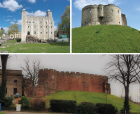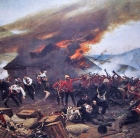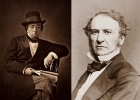KS3 planning (general)
There are many different issues, both practical and pedagogical, subject specific, school-wide and national that must be considered in any teachers’ planning. In this section you will find research, articles, guides and resources that will support you to develop your planning as it relates to teaching history and helping pupils to make progress.
Sort by:
Date (Newest first) | Title A-Z
Show:
All |
Articles |
Podcasts |
Multipage Articles
-

Cunning Plan 167: teaching the industrial revolution
ArticleClick to view -

Cunning Plan 173: using Black Tudors as a window into Tudor England
ArticleClick to view -

Cunning Plan 178: How far did Anglo-Saxon England survive the Norman Conquest?
ArticleClick to view -

Cunning Plan 186: teaching Samurai Japan in Key Stage 3
ArticleClick to view -

Cunning Plan 96: teaching citizenship through KS3 history
ArticleClick to view -

Deconstructing lazy analogies in Year 9
ArticleClick to view -

Deepening Year 9’s knowledge for better causation arguments
ArticleClick to view -

Denis Shemilt's four stages of adolescent ideas about historical methods in a nutshell
ArticleClick to view -

Designing an enquiry in a challenging setting
ArticleClick to view -

Developing Year 8 students' conceptual thinking about diversity in Victorian society
ArticleClick to view -

Developing awareness of the need to select evidence
ArticleClick to view -

Developing conceptual understanding through talk mapping
ArticleClick to view -

Dialogue, engagement and generative interaction in the history classroom
ArticleClick to view -

Dickens...Hardy...Jarvis?! A novel take on the Industrial Revolution
ArticleClick to view -

Direct teaching of paragraph cohesion
ArticleClick to view -

Do we need another hero? Rorke's Drift
ArticleClick to view -

Does the linguistic release the conceptual? Helping Year 10 to improve their casual reasoning
ArticleClick to view -

Effective essay introductions
ArticleClick to view -

Enabling Year 7 to write essays on Magna Carta
ArticleClick to view -

Engaging Year 9 students in party politics
ArticleClick to view

